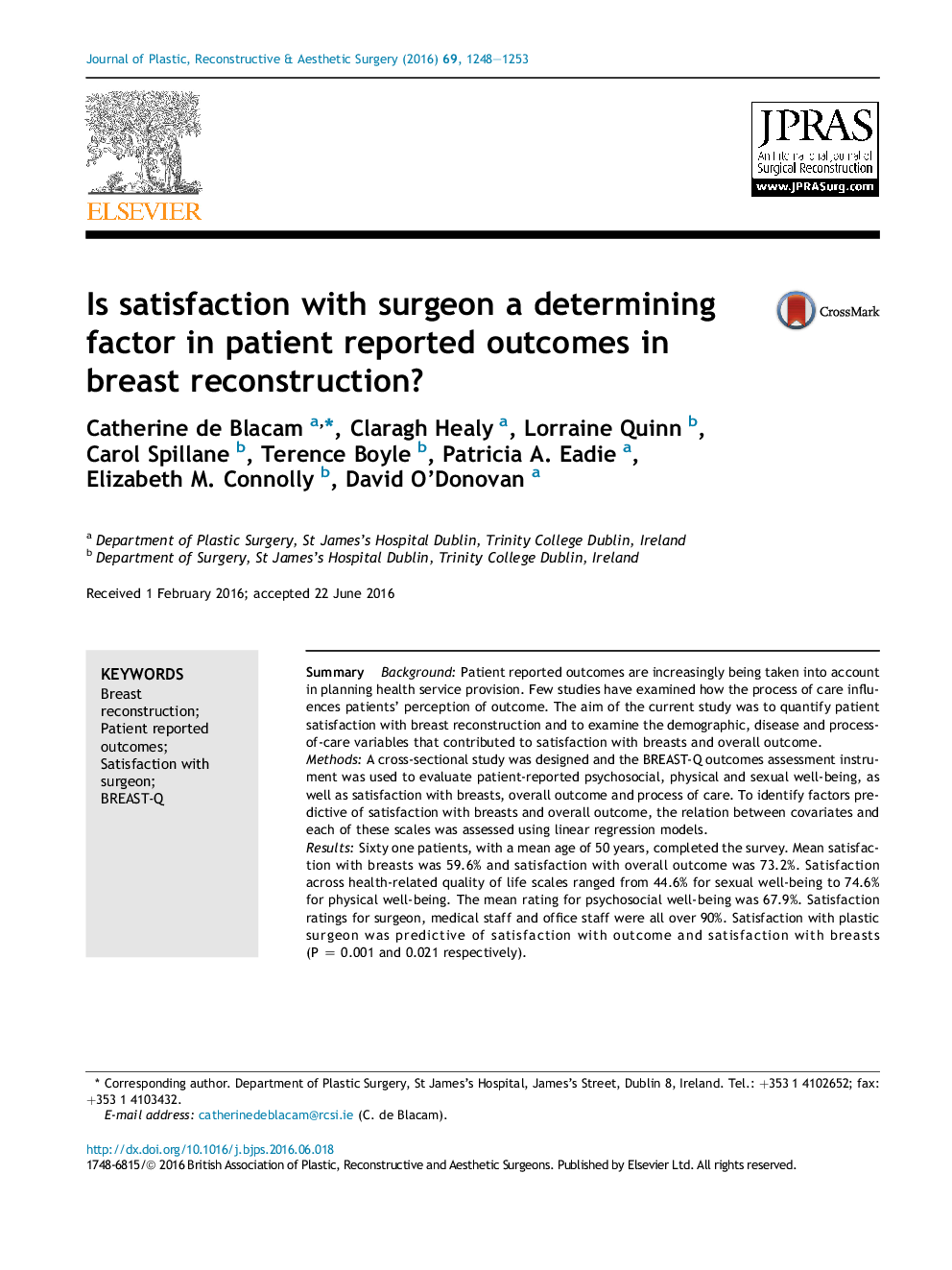| Article ID | Journal | Published Year | Pages | File Type |
|---|---|---|---|---|
| 4117121 | Journal of Plastic, Reconstructive & Aesthetic Surgery | 2016 | 6 Pages |
SummaryBackgroundPatient reported outcomes are increasingly being taken into account in planning health service provision. Few studies have examined how the process of care influences patients' perception of outcome. The aim of the current study was to quantify patient satisfaction with breast reconstruction and to examine the demographic, disease and process-of-care variables that contributed to satisfaction with breasts and overall outcome.MethodsA cross-sectional study was designed and the BREAST-Q outcomes assessment instrument was used to evaluate patient-reported psychosocial, physical and sexual well-being, as well as satisfaction with breasts, overall outcome and process of care. To identify factors predictive of satisfaction with breasts and overall outcome, the relation between covariates and each of these scales was assessed using linear regression models.ResultsSixty one patients, with a mean age of 50 years, completed the survey. Mean satisfaction with breasts was 59.6% and satisfaction with overall outcome was 73.2%. Satisfaction across health-related quality of life scales ranged from 44.6% for sexual well-being to 74.6% for physical well-being. The mean rating for psychosocial well-being was 67.9%. Satisfaction ratings for surgeon, medical staff and office staff were all over 90%. Satisfaction with plastic surgeon was predictive of satisfaction with outcome and satisfaction with breasts (P = 0.001 and 0.021 respectively).DiscussionThe surgeon–patient relationship significantly influences patient reported outcomes in breast reconstruction. Further service development must recognize the need for additional time and personnel to deliver high standard, patient-centered care.
